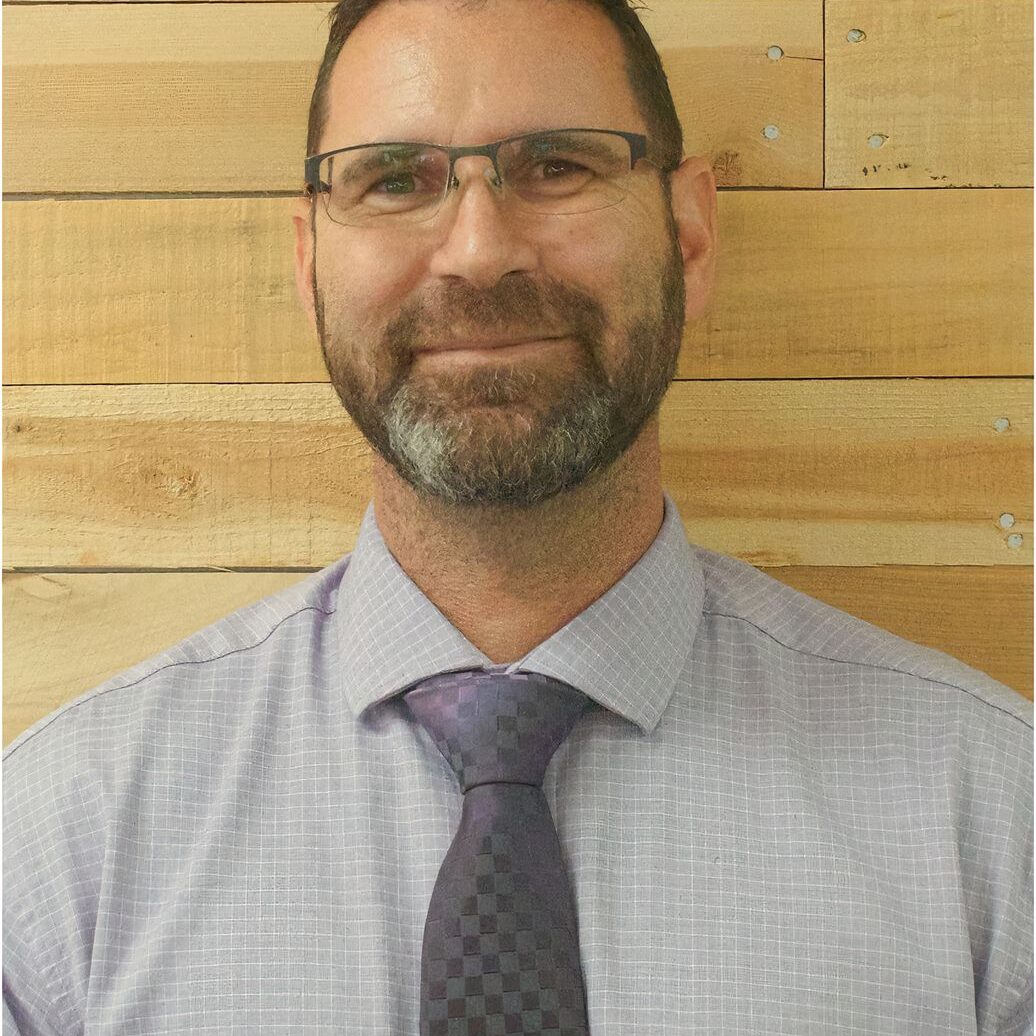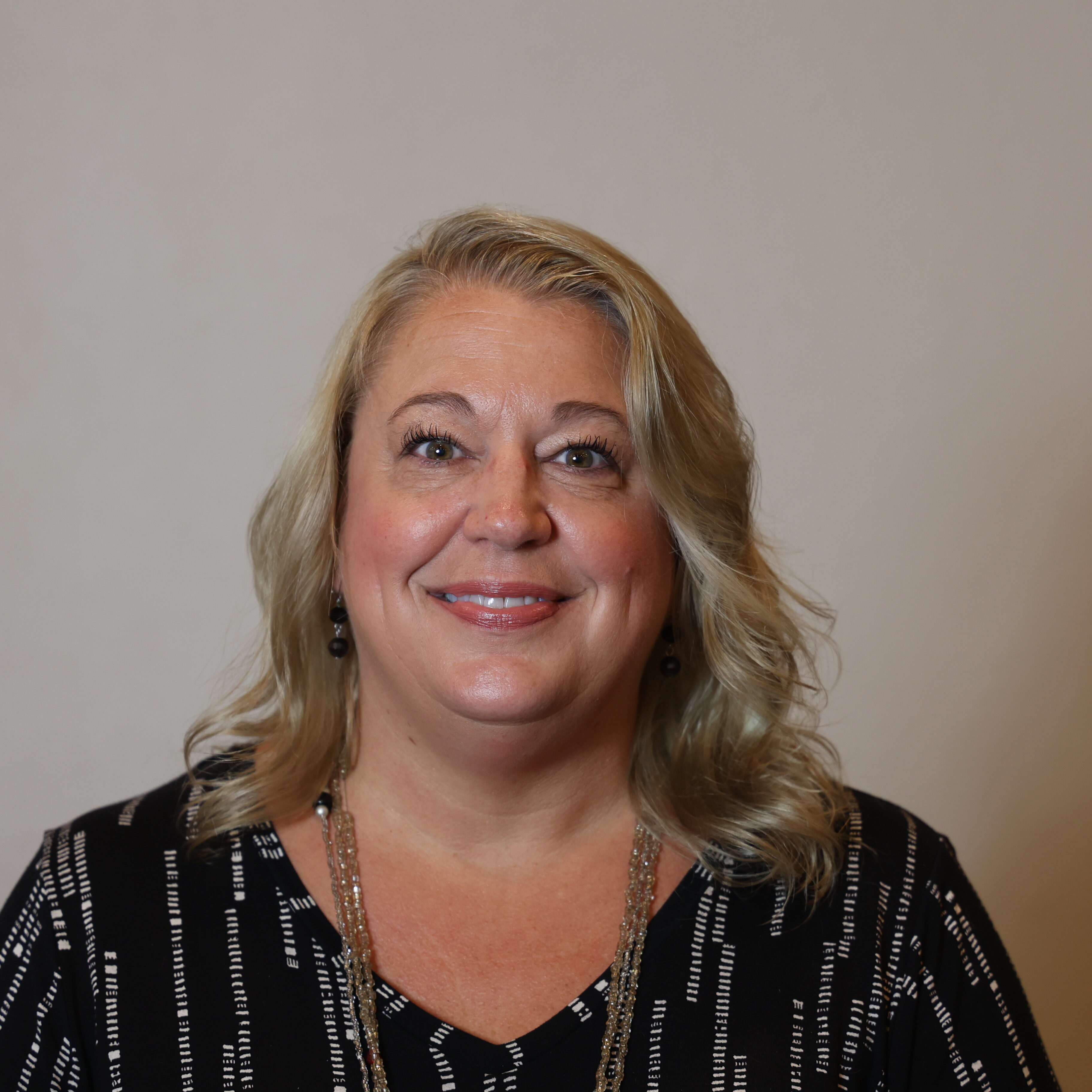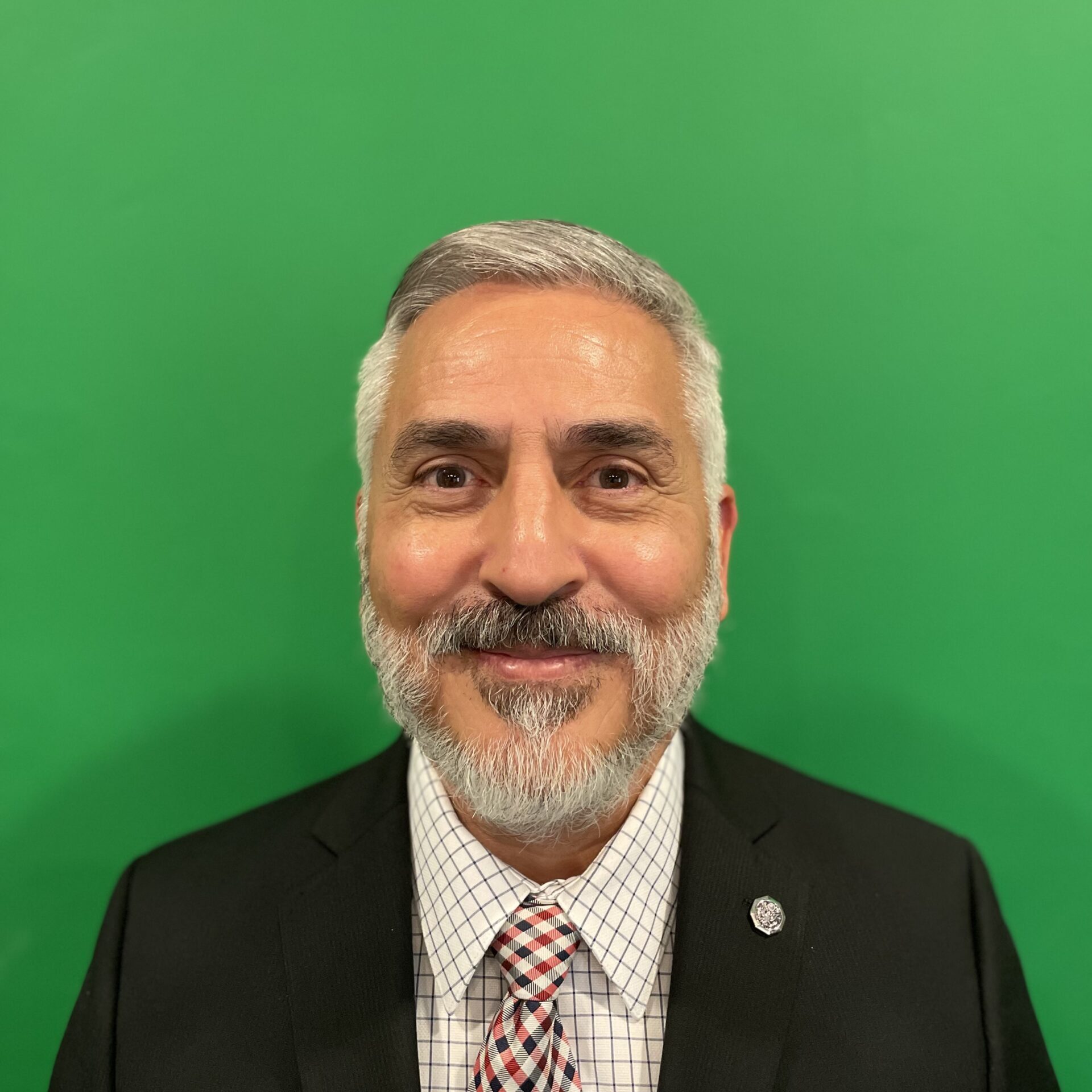About us
Dr Patrick Marks,
Founder & President
Welcome to FourteenSix Christian Academy! We believe the main responsibility for the education of children lies with parents (Duet. 6:7, Prov. 22:6, I Tim. 5:14, Eph. 6:4) thus, we see our role at the Academy as fellow-labourers in the training of young disciples of Jesus Christ. Discipleship is our goal and academics is the vehicle.
FourteenSix Christian Academy was founded in 2014 and is a ministry of Calvary Chapel FourteenSix. The name "FourteenSix" comes from the founding Scripture of the church, John 14:6 -Jesus said to him, "I am the way, and the truth, and the life; no one comes to the Father except through Me."
Supporting Arizona Students
ESA SCHOLARSHIP
APPLYING FOR FINANCIAL AID

1. Check eligibility
All students in grades K–12 who reside in Arizona qualify for the Empowerment Scholarship Account. For more information, connect with our enrollment consultants.

2. Apply
Apply to FourteenSix Christian Academy Our enrollment consultants will help you submit your application and provide guidance on applying to the Empowerment Scholarship.

3. Receive your approval
Our enrollment team will notify you once you're approved to join FourteenSix Christian Academy . The Arizona Department of Education will let you know the amount of your Empowerment Scholarship and how to access your funds through ClassWallet.
TEACHING TRUTH ONLINE ●
Enrolling Grades 9-12 for Fall 2023!
In our online academy, we are building freethinking, life-long disciples— from home.
With our robust and collaborative learning management system, high school students experience a self-paced and flexible learning environment with 24/7 curriculum access.
Students meet with their teacher online two days a week, allowing for flexibility and live
teacher engagement.
Advanced students have the opportunity to earn college credits through
Grand Canyon University's dual enrollment program.
With only 15 academic weeks each semester and learning breaks built into their schedules, students will have more time to spend with family and God.
Apply to Learn More!
Why FourteenSix?
Key Services and Offerings
OUR VISION
The vision of FourteenSix Christian Academy is to equip young people to be able to answer the worlds question's regarding the hope that is within (1 Peter 3:15), therefore, we are dedicated to building Biblically literate, academically proficient young people with a well-grounded Biblical worldview from which they can build successful lives.
OUR MISSION
The mission of FourteenSix Christian Academy is to create a Christ-centered nurturing environment with biblically based academic excellence empowering students for life-long service to the Lord Jesus Christ.
Academics as a means of discipleship
Everyone has a worldview. A worldview is a connected set of beliefs about the real world and what the real world should be like. It is like wearing colored sunglasses. If the glasses are tinted green, then everything in the world appears green to the person wearing the glasses. The sunglasses color how the wearer sees the world.
In general, the public education worldview is secular, that is, it is not based on the Bible. Most secular educational philosophy is based on the ideas that people are basically good and just need the proper environment to become productive members of the community. This worldview tends to erode personal responsibility because the result is that if a child is not learning, it is the fault of exterior issues such as society…or the teacher…or parents etc., but not the attitude of heart of the student.
The secular view is that students naturally want to learn academics and just need to be encouraged to become "life-long learners." Students only need to be exposed to information to accomplish learning; therefore, it is academically unhealthy to use rote memorization of facts as a learning tool and absolute truth concepts - especially in religious, moral or philosophical beliefs - should be avoided or kept private (and discouraged).
The founder of FourteenSix Christian Academy, Dr. Patrick Marks, was a public-school educator and personally watched many students flounder both morally and academically when influenced by this system. As a result, Dr. Marks designed the basic structure of the Academy to be based on a Biblical worldview.
In a Biblical worldview, people do have the capacity to be good because they are created in the image of God, but since human beings have fallen away from God, there is a natural tendency in every person to rebel and promote a personal agenda. Human beings need boundaries, need to feel rewards and consequences, and need to learn to rely on God's spirit to be truly good. Learning is therefore the responsibility of the free-will response of the learner, not the environment per se.
In short, the Biblical worldview is that students generally want to learn only what they desire to learn, not what they need to learn. Students need boundaries, guidance, and firm encouragement to learn the proper building blocks of knowledge based squarely on Proverbs 1:7 which reads, "The fear of the Lord is the beginning of knowledge; Fools despise wisdom and instruction" and Psalm 119: 11 which reads, "Your word I have hidden in my heart, That I might not sin against You." In the Biblical worldview for learning, memorization is foundational and absolute truth is knowable.
At FourteenSix Academy, discipleship training is our PRIORITY. We believe in strong academics based on a classical model, but everything we study links back to following Jesus.
Why Fourteensix?
Key Services and Offerings
OUR VISION
The vision of Fourteensix Christian Academy is to equip young people to be able to answer the worlds question's regarding the hope that is within (1 Peter 3:15), therefore, we are dedicated to building Biblically literate, academically proficient young people with a well-grounded Biblical worldview from which they can build successful lives.
OUR MISSION
The mission of Fourteensix Christian Academy is to create a Christ-centered nurturing environment with biblically based academic excellence empowering students for life-long service to the Lord Jesus Christ.
Academics as a means of discipleship
Everyone has a worldview. A worldview is a connected set of beliefs about the real world and what the real world should be like. It is like wearing colored sunglasses. If the glasses are tinted green, then everything in the world appears green to the person wearing the glasses. The sunglasses color how the wearer sees the world.
In general, the public education worldview is secular, that is, it is not based on the Bible. Most secular educational philosophy is based on the ideas that people are basically good and just need the proper environment to become productive members of the community. This worldview tends to erode personal responsibility because the result is that if a child is not learning, it is the fault of exterior issues such as society…or the teacher…or parents etc., but not the attitude of heart of the student.
The secular view is that students naturally want to learn academics and just need to be encouraged to become "life-long learners." Students only need to be exposed to information to accomplish learning; therefore, it is academically unhealthy to use rote memorization of facts as a learning tool and absolute truth concepts - especially in religious, moral or philosophical beliefs - should be avoided or kept private (and discouraged).
The founder of Fourteensix Christian Academy, Dr. Patrick Marks, was a public-school educator and personally watched many students flounder both morally and academically when influenced by this system. As a result, Dr. Marks designed the basic structure of the Academy to be based on a Biblical worldview.
In a Biblical worldview, people do have the capacity to be good because they are created in the image of God, but since human beings have fallen away from God, there is a natural tendency in every person to rebel and promote a personal agenda. Human beings need boundaries, need to feel rewards and consequences, and need to learn to rely on God's spirit to be truly good. Learning is therefore the responsibility of the free-will response of the learner, not the environment per se.
In short, the Biblical worldview is that students generally want to learn only what they desire to learn, not what they need to learn. Students need boundaries, guidance, and firm encouragement to learn the proper building blocks of knowledge based squarely on Proverbs 1:7 which reads, "The fear of the Lord is the beginning of knowledge; Fools despise wisdom and instruction" and Psalm 119: 11 which reads, "Your word I have hidden in my heart, That I might not sin against You." In the Biblical worldview for learning, memorization is foundational and absolute truth is knowable.
At Fourteensix Academy, discipleship training is our PRIORITY. We believe in strong academics based on a classical model, but everything we study links back to following Jesus.
OUR
FourteenSix Christian Academy is a Christian educational experience combining the best aspects of discipleship, apologetics, traditional classroom instruction, homeschool integration and the ancient classical three-stage education system into a unique educational philosophy.
What is
The word disciple comes from the Greek word μαθητής (math-ay-tes) meaning "a learner, student." This term describes a person who follows the characteristics and teachings of a master-teacher. It is our goal to be disciples of Jesus.
WHAT IS
Apologetics is the rational defense of the Christian faith. The term is taken from the Greek ἀπολογία (ap-ol-og-ee'-ah) meaning "to give a defense." 1 Peter 3:15 is a primary verse concerning defense. It reads, "…sanctify Christ as Lord in your hearts, always being ready to make a defense to everyone who asks you to give an account for the hope that is in you, but with gentleness and respect."
OUR
Fourteensix Christian Academy is a Christian educational experience combining the best aspects of discipleship, apologetics, traditional classroom instruction, homeschool integration and the ancient classical three-stage education system into a unique educational philosophy.
What is
The word disciple comes from the Greek word μαθητής (math-ay-tes) meaning "a learner, student." This term describes a person who follows the characteristics and teachings of a master-teacher. It is our goal to be disciples of Jesus.
WHAT IS
Apologetics is the rational defense of the Christian faith. The term is taken from the Greek ἀπολογία (ap-ol-og-ee'-ah) meaning "to give a defense." 1 Peter 3:15 is a primary verse concerning defense. It reads, "…sanctify Christ as Lord in your hearts, always being ready to make a defense to everyone who asks you to give an account for the hope that is in you, but with gentleness and respect."
What is traditional classroom instruction?
Traditional classroom instruction, in general, takes place in a setting where students are given training while assembled, learning primarily through lecture under the close supervision of a teacher. Classroom instruction is not negative per se, and we are not advocates of abandoning it, but in our modern culture it has been used to promote, through a herd-like mentality, a world-based educational philosophy. What matters is the educational philosophy being promoted.
Today's modern educational philosophy, in large part, stems from a Darwinist, socialist foundation. Darwinism elevates the survival of the whole over the dignity of the individual. This philosophy is largely unwritten but, in general, the result is a growing sense of "group-think" and allegiance to a community narrative in contrast to individual rational thought. In short, the public system tends to teach people WHAT to think whereas the Academy works to teach students HOW to think.
What is the ancient classical three-stage education system?
The Trivium is defined as the ancient Greek / Roman classical model of learning called the Trivium. Today, we define this as "the Trilogy," which is the philosophy that learning is best achieved recognizing and working within the characteristics of three distinct stages:
► The Data stage (What-based learning. The memory of facts as building blocks),
► ...the Discussion stage (Why-based learning. This is answering why things work or happen or matter.),
►…and the Demonstration stage (How-based learning. Researching a subject and presenting what has been learned through papers, mini-lessons, debates, and presentations).
The Trilogy can be used to master a subject - thus, a student learns to first identify and memorize facts of a subject as building blocks, then learns how these building blocks link and finally demonstrates to others what has been learned since teaching is the best way to learn. The trilogy can also correspond to general areas of human development, thus in general, K - 5 students function best pursuing data-based learning, 6 - 8 students function best pursuing Discussion based learning and 9 - 12 students do best with demonstration-based learning. The Academy focuses on using the trilogy within subjects and in the general sense.
Traditional classroom instruction, in general, takes place in a setting where students are given training while assembled, learning primarily through lecture under the close supervision of a teacher. Classroom instruction is not negative per se, and we are not advocates of abandoning it, but in our modern culture it has been used to promote, through a herd-like mentality, a world-based educational philosophy. What matters is the educational philosophy being promoted.
Today's modern educational philosophy, in large part, stems from a Darwinist, socialist foundation. Darwinism elevates the survival of the whole over the dignity of the individual. This philosophy is largely unwritten but, in general, the result is a growing sense of "group-think" and allegiance to a community narrative in contrast to individual rational thought. In short, the public system tends to teach people WHAT to think whereas the Academy works to teach students HOW to think.
The Trivium is defined as the ancient Greek / Roman classical model of learning called the Trivium. Today, we define this as "the Trilogy," which is the philosophy that learning is best achieved recognizing and working within the characteristics of three distinct stages:
► The Data stage (What-based learning. The memory of facts as building blocks),
► ...the Discussion stage (Why-based learning. This is answering why things work or happen or matter.),
►…and the Demonstration stage (How-based learning. Researching a subject and presenting what has been learned through papers, mini-lessons, debates, and presentations).
The Trilogy can be used to master a subject - thus, a student learns to first identify and memorize facts of a subject as building blocks, then learns how these building blocks link and finally demonstrates to others what has been learned since teaching is the best way to learn. The trilogy can also correspond to general areas of human development, thus in general, K - 5 students function best pursuing data-based learning, 6 - 8 students function best pursuing Discussion based learning and 9 - 12 students do best with demonstration-based learning. The Academy focuses on using the trilogy within subjects and in the general sense.
What is the educational philosophy of FourteenSix Christian Academy?
Our educational philosophy is that all students have the capacity to learn but the condition of the heart is what leads students to actually learn. As such, it is not the external environment that leads to learning but rather the development of a soft, willing, teachable heart that leads to learning. Our goal is to appeal to the heart of the student through philosophical, ethical, Biblical and academic apologetics threaded into our curriculum. To make this a reality, the Academy shall follow a Trivium based curriculum model. The Trivium is defined as the ancient Greek / Roman classical model of learning.
70%
Recieve Tuition Assitance
12-15
Average Class Size

Dr. Michael (Mike) Finley

Cherie Bolton

Pastor Brandon (Pastor B) Poninski
What is the educational philosophy of Fourteensix Christian Academy?
Our educational philosophy is that all students have the capacity to learn but the condition of the heart is what leads students to actually learn. As such, it is not the external environment that leads to learning but rather the development of a soft, willing, teachable heart that leads to learning. Our goal is to appeal to the heart of the student through philosophical, ethical, Biblical and academic apologetics threaded into our curriculum. To make this a reality, the Academy shall follow a Trivium based curriculum model. The Trivium is defined as the ancient Greek / Roman classical model of learning.
70%
Recieve Tuition Assitance
12-15
Average Class Size

Dr. Michael (Mike) Finley

Cherie Bolton

Richard (Mr. Fig) Figueroa

Pastor Brandon (Pastor B) Poninski
WHY FOURTEENSIX?
CURRICULUM structure
Data Stage
Discussion Stage
Demonstration Stage
Grades K-5
Students in this stage are taught using memorization-based learning (what is it?), focusing on memorizing facts as building blocks for later learning. Teachers and parents at this stage use rewards to imprint facts on the mind and heart and since students in this age group are essentially little sponges, teachers use body (kinesthetic), music, dance, and continual encouragement.
Grades 6-8
Students in this stage are taught using exploration-based learning (why is it?), focusing on explaining how facts are useful and relate. Teachers and parents at this stage show how the facts link to each other (this leads to this) and work to explain why knowing these facts and how they relate is useful in a practical way. Since students in this age group are beginning to find their own individuality there are many "but why" questions. Students are guided using reward and consequence. Competitive drills and avoiding group projects so that students can find their individuality is encouraged at this level.
Grades 9-12
Students in this stage are taught using explanation-based learning (here it is), focusing on researching a topic and explaining what they have learned to others in teacher-coached student presentations, debate, and essays. Students at this level are experimenting with their individuality as young adults so parents and teachers begin to function more as coaches. Socratic dialogue (questions that require students to think through an answer) is used whenever possible.
WHY FOURTEEN SIX?
CURRICULUM structure
Grades K-5
Students in this stage are taught using memorization-based learning (what is it?), focusing on memorizing facts as building blocks for later learning. Teachers and parents at this stage use rewards to imprint facts on the mind and heart and since students in this age group are essentially little sponges, teachers use body (kinesthetic), music, dance, and continual encouragement.
Grades 6-8
Students in this stage are taught using exploration-based learning (why is it?), focusing on explaining how facts are useful and relate. Teachers and parents at this stage show how the facts link to each other (this leads to this) and work to explain why knowing these facts and how they relate is useful in a practical way. Since students in this age group are beginning to find their own individuality there are many “but why" questions. Students are guided using reward and consequence. Competitive drills and avoiding group projects so that students can find their individuality is encouraged at this level.
Grades 9-12
Students in this stage are taught using explanation-based learning (here it is), focusing on researching a topic and explaining what they have learned to others in teacher-coached student presentations, debate, and essays. Students at this level are experimenting with their individuality as young adults so parents and teachers begin to function more as coaches. Socratic dialogue (questions that require students to think through an answer) is used whenever possible.

KIND WORDS
FROM HOPEFUL DISCIPLES
VISIT NOW
VISIT THE FOURTEENSIX CHURCH WEBSITE




